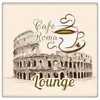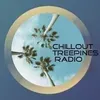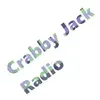Lounge Live Radio Stations
Radio Stations
- - 0 N - Chillout on Radio

- - 0 N - Chillout on Radio

- - 0 N - Jazz on Radio

- - 0 N - Jazz on Radio

- - 0 N - Lounge on Radio

- - 0 N - Lounge on Radio

- - 1 A - Chillout von 1A Radio

- - 1 A - Chillout von 1A Radio

- - 1 A - Entspannt von 1A Radio

- - 1 A - Entspannt von 1A Radio

- #1 Splash Lounge

- 1.FM - Chillout Lounge Radio

- 100 Best Ibiza Deep House100 Best Ibiza Deep House
- 100 Chill radio

- 100 GREATEST JAZZ LOUNGE BAR100 GREATEST JAZZ LOUNGE BAR
- 1000 Hits 60s1000 Hits 60s
- 1fm next2

- 60ies Bar-Lounge

- 95.5 Charivari München - Lounge

- ABC Lounge Radio

- ABF World

- Algorythme Lounge && BossaAlgorythme Lounge && Bossa
- Algorythme RadioAlgorythme Radio
- Allzic Jazz LoungeAllzic Jazz Lounge
- Allzic Radio - Lounge

- Alpha FM 101.7Alpha FM 101.7
- Antenne Bayern - Lounge

- Antenne Vorarlberg-Lounge

- BALATONICA RADIO

- BDJ Electronic Lounge Radio

- Be

- Blue Marlin Ibiza RadioBlue Marlin Ibiza Radio
- boolout lofi radio

- Café del Mar

- Café del Mar HD (unofficial)

- Cafe Roma Lounge

- CAFE ROMA LOUNGECAFE ROMA LOUNGE
- Charivari München - Lounge Music

- Chiarivari - Lounge

- Chil 365Chil 365
- CHILLOUT IBIZA FMCHILLOUT IBIZA FM
- Chillout Tree Pines

- Classic Vinyl HDClassic Vinyl HD
- Classic Vinyl HDClassic Vinyl HD
- CNR-15 中国交通广播CNR-15 中国交通广播
- Code Radio - freecodecamp.org

- Coolmusic Radio - Cool Coffee

- Costa del Mar

- Crabby Jack Radio

- Crema Café - Open FM

Choose a Genre
The Alluring World of Lounge Music: A Genre of Sophistication and Relaxation
Lounge music is more than just a genre—it's an experience. Originating in the 1950s and 1960s, this style of easy listening music evokes a sense of sophistication and relaxation. Associated with the ambiance of chic bars, elegant hotels, and upscale restaurants, lounge music creates a smooth and calming atmosphere perfect for unwinding after a busy day or setting the mood for an evening of leisure.
The Roots of Lounge Music
Lounge music emerged during a time when American culture was embracing the post-war desire for comfort and elegance. It became the soundtrack of the "jet-set" lifestyle, often played in refined social spaces. The genre draws from a rich blend of jazz, bossa nova, exotica, and easy listening, with a distinctive use of acoustic instruments to create a polished, relaxed sound. The genre’s popularity soared in cocktail lounges and hotel lobbies, where it set the perfect backdrop for conversations, enjoying a drink, or simply relaxing in style.
The arrangement of lounge music is often lush and smooth, with the sound of pianos, saxophones, trumpets, and vibraphones taking center stage. These instruments work together in a seamless, melodious flow, creating an inviting atmosphere that encourages ease and relaxation. Whether you’re enjoying a quiet evening or in the background of a vibrant social scene, lounge music serves as the ideal soundtrack for a moment of peace.
Sub-genres and Variations Within Lounge Music
Lounge music, while often recognized by its smooth and calming characteristics, can be divided into several sub-genres, each offering a unique take on the genre's core essence. These include:
Easy Listening: This sub-genre is perhaps the most quintessential form of lounge music. It features simple, melodic arrangements designed for casual listening. Artists who specialize in easy listening often use lush orchestration and a soft, inviting vocal style.
Exotica: Exotica is a sub-genre of lounge music that blends tropical and island-inspired sounds with smooth rhythms. Think of lush, melodic arrangements that evoke the feeling of being on a faraway beach or in a lush, tropical garden. Instruments like steel drums and marimbas are often featured in exotica music.
Space Age Pop: As the name suggests, this sub-genre of lounge music draws inspiration from the excitement and futuristic vibes of the Space Age. With its use of electronic sounds and imaginative orchestration, space age pop creates an atmosphere of wonder and discovery.
Each of these sub-genres retains the laid-back style of lounge music but adds its own distinct flavor, making the genre endlessly versatile and capable of capturing a wide range of moods.
Lounge Radio: Perfect for Any Occasion
Lounge music has a timeless quality, which is why it remains a popular choice on radio stations today. Whether you are hosting a dinner party, relaxing at home, or simply enjoying a quiet moment, the sounds of lounge music can instantly elevate the atmosphere. Radio stations dedicated to lounge music curate a blend of classic and contemporary tracks that allow listeners to experience the genre’s evolution.
Many lounge radio stations also feature live performances and interviews with lounge artists, offering listeners a deeper connection to the music and the artists who continue to shape the genre. These stations provide a rich mix of well-known lounge classics and fresh, new sounds, ensuring that there is always something to discover.
Iconic Artists Who Defined Lounge Music
Lounge music owes much of its popularity to a select group of artists whose timeless songs continue to define the genre. Some of the most famous names in lounge music include:
Frank Sinatra: Known as "Ol' Blue Eyes," Sinatra's smooth vocal delivery and timeless appeal made him an icon of lounge music. His songs, such as Fly Me to the Moon and The Way You Look Tonight, have become synonymous with sophistication.
Dean Martin: Another legendary figure, Dean Martin brought charm and charisma to the lounge genre with his relaxed vocal style. Hits like That's Amore and Sway exemplify his contribution to the genre.
Peggy Lee: A talented vocalist and composer, Peggy Lee's sultry and smooth voice made her a favorite in the lounge scene. Her songs like Fever and Why Don't You Do Right? continue to captivate listeners today.
Julie London: Known for her breathy and intimate vocal style, Julie London’s contributions to lounge music are still highly regarded. Tracks like Cry Me a River are staples of the genre and showcase her ability to evoke deep emotion through her singing.
These artists, among many others, have shaped lounge music into the rich, diverse genre it is today, influencing not just other musicians but also popular culture as a whole.
Conclusion: The Timeless Charm of Lounge Music
Lounge music remains a genre that celebrates the art of relaxation and sophistication. Whether you’re seeking a soundtrack for a chic cocktail party or simply want to unwind after a long day, lounge music provides the perfect blend of calm, style, and elegance. With its smooth instrumentation, soothing rhythms, and memorable melodies, lounge music continues to offer a transformative listening experience that transcends time. Tune into a lounge radio station and let the mellow sounds of this timeless genre whisk you away into a world of relaxation and refinement.
Lounge music is more than just a genre—it's an experience. Originating in the 1950s and 1960s, this style of easy listening music evokes a sense of sophistication and relaxation. Associated with the ambiance of chic bars, elegant hotels, and upscale restaurants, lounge music creates a smooth and calming atmosphere perfect for unwinding after a busy day or setting the mood for an evening of leisure.
The Roots of Lounge Music
Lounge music emerged during a time when American culture was embracing the post-war desire for comfort and elegance. It became the soundtrack of the "jet-set" lifestyle, often played in refined social spaces. The genre draws from a rich blend of jazz, bossa nova, exotica, and easy listening, with a distinctive use of acoustic instruments to create a polished, relaxed sound. The genre’s popularity soared in cocktail lounges and hotel lobbies, where it set the perfect backdrop for conversations, enjoying a drink, or simply relaxing in style.
The arrangement of lounge music is often lush and smooth, with the sound of pianos, saxophones, trumpets, and vibraphones taking center stage. These instruments work together in a seamless, melodious flow, creating an inviting atmosphere that encourages ease and relaxation. Whether you’re enjoying a quiet evening or in the background of a vibrant social scene, lounge music serves as the ideal soundtrack for a moment of peace.
Sub-genres and Variations Within Lounge Music
Lounge music, while often recognized by its smooth and calming characteristics, can be divided into several sub-genres, each offering a unique take on the genre's core essence. These include:
Easy Listening: This sub-genre is perhaps the most quintessential form of lounge music. It features simple, melodic arrangements designed for casual listening. Artists who specialize in easy listening often use lush orchestration and a soft, inviting vocal style.
Exotica: Exotica is a sub-genre of lounge music that blends tropical and island-inspired sounds with smooth rhythms. Think of lush, melodic arrangements that evoke the feeling of being on a faraway beach or in a lush, tropical garden. Instruments like steel drums and marimbas are often featured in exotica music.
Space Age Pop: As the name suggests, this sub-genre of lounge music draws inspiration from the excitement and futuristic vibes of the Space Age. With its use of electronic sounds and imaginative orchestration, space age pop creates an atmosphere of wonder and discovery.
Each of these sub-genres retains the laid-back style of lounge music but adds its own distinct flavor, making the genre endlessly versatile and capable of capturing a wide range of moods.
Lounge Radio: Perfect for Any Occasion
Lounge music has a timeless quality, which is why it remains a popular choice on radio stations today. Whether you are hosting a dinner party, relaxing at home, or simply enjoying a quiet moment, the sounds of lounge music can instantly elevate the atmosphere. Radio stations dedicated to lounge music curate a blend of classic and contemporary tracks that allow listeners to experience the genre’s evolution.
Many lounge radio stations also feature live performances and interviews with lounge artists, offering listeners a deeper connection to the music and the artists who continue to shape the genre. These stations provide a rich mix of well-known lounge classics and fresh, new sounds, ensuring that there is always something to discover.
Iconic Artists Who Defined Lounge Music
Lounge music owes much of its popularity to a select group of artists whose timeless songs continue to define the genre. Some of the most famous names in lounge music include:
Frank Sinatra: Known as "Ol' Blue Eyes," Sinatra's smooth vocal delivery and timeless appeal made him an icon of lounge music. His songs, such as Fly Me to the Moon and The Way You Look Tonight, have become synonymous with sophistication.
Dean Martin: Another legendary figure, Dean Martin brought charm and charisma to the lounge genre with his relaxed vocal style. Hits like That's Amore and Sway exemplify his contribution to the genre.
Peggy Lee: A talented vocalist and composer, Peggy Lee's sultry and smooth voice made her a favorite in the lounge scene. Her songs like Fever and Why Don't You Do Right? continue to captivate listeners today.
Julie London: Known for her breathy and intimate vocal style, Julie London’s contributions to lounge music are still highly regarded. Tracks like Cry Me a River are staples of the genre and showcase her ability to evoke deep emotion through her singing.
These artists, among many others, have shaped lounge music into the rich, diverse genre it is today, influencing not just other musicians but also popular culture as a whole.
Conclusion: The Timeless Charm of Lounge Music
Lounge music remains a genre that celebrates the art of relaxation and sophistication. Whether you’re seeking a soundtrack for a chic cocktail party or simply want to unwind after a long day, lounge music provides the perfect blend of calm, style, and elegance. With its smooth instrumentation, soothing rhythms, and memorable melodies, lounge music continues to offer a transformative listening experience that transcends time. Tune into a lounge radio station and let the mellow sounds of this timeless genre whisk you away into a world of relaxation and refinement.